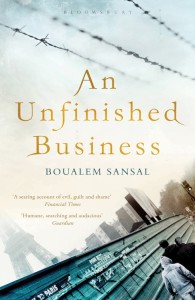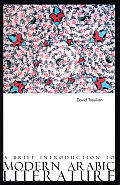You probably all know the phenomenon: you read a translated book, the quality of the translation is excellent, good, average, poor, a crime – and all shades in between; if the language is good or not in the original edition you usually don’t know for sure unless you are able to compare. Many great books have been spoilt completely by an inadequate translation and there are also cases when the translation reads much better than the original. Fortunately, there are many excellent translators, and for a translated book the name of the translator has for me great importance because I know already what I can expect in terms of quality of the translation.
A particular annoying case are book titles that are not a translation of the original title, but that reflect the fact that nowadays the marketing departments of publishing houses seem to have greater importance as, mind you, people who wrote, edited and translated the book.
A few examples: Elias Canetti’s Die Blendung (The Blinding) becomes Auto-da-fé, Jean-Paul Sartre’s Morts sans sépulture (The unburied dead) becomes The Victors or Men without Shadows, or Boualem Sansal’s Le village de l’allemand (The village of the German) transforms miraculously into An Unfinished Business or The German Mujahid. The Sherlock Holmes novel The Hound of the Baskervilles was for decades published as Der Hund von Baskerville (as if the English title would be The Hound of Baskerville!) and only the newer translations use the correct Der Hund der Baskervilles. Most German editions of Dostoevsky’s Преступление и наказание have been published under the title Schuld und Sühne (Guilt and Atonement), some under the title Raskolnikov, when the obviously best translation would be Verbrechen und Strafe (Crime and Punishment), which was used for the translations of Alexander Eliasberg in the 1920s and by Svetlana Geier in the 1990s and which now fortunately seem to stick. And, dear publishers, there was a reason why Herta Müller chose the poetic Der Mensch ist ein grosser Fasan auf der Welt (Man is a great pheasant in the World) and not the prosaic Der Pass (The Passport), as the English edition of one of her books suggests. It is a lack of respect to the author and also to us readers to change such a title – do you marketing guys even believe that the book sold better because you invented a new title for it?
It would be easy to add dozens, if not hundreds of examples of wrong title translations. I am sure most readers of this post have their own list for this phenomenon.
There are a few cases when a different title for a translation seems acceptable or necessary. Not in every case the book appears in the original edition under the title which the author had in mind. Ismail Kadare’s The Siege (an exact translation of the Albanian title would be The Castle or The Fortress) should have been published under the title The Drums of Rain (in Albanian), and the title of the French edition Les Tambours de la pluie is therefore highly appropriate.
Another case may be copyright issues or the existence of a book under the exact same title that is already on the market. Nigel Barley’s Island of Demons was published in German as Das letzte Paradies (The Last Paradise) probably because almost at the same time another book by Lothar Reichel about Bali was published as Insel der Dämonen – both books referring to Walter Spies and Victor von Plessen’s movie Insel der Dämonen, and both with a cover illustration based on paintings by Spies. In such a case when even the content of the book is similar, a different title seems unavoidable.
The worst are for me always such title translations which seem to be more or less correct, but are indeed not and that even by that change the intention of the author or suggest an interpretation of the text that is wrong or misleading.
An interesting case is the title of Christoph Hein’s novel Landnahme in English: Settlement. Settlement is an excellent novel which I intend to review later and the translation is overall good. My first reaction was that the title is obviously wrong. But the case is more tricky as it seems.
The main character is what was called in West Germany a Heimatvertriebener (literally “one who was expelled from his home place”), a German who had to flee from what was after WWII becoming Polish territory and resettled in his case in Eastern Germany, the future GDR (where these people were called Umsiedler, literally meaning “those who have resettled”).
The word Landnahme in German means literally “to take the land”, it is clearly an active, possibly even an aggressive act, depending on if the land was already occupied by someone (in that case it would be translated as “conquest” in English), or if the land was acquired by legal means (buying or acquisition by a lawful redistribution of the land).
Settlement is therefore under no circumstances a literal translation of Landnahme. The author plays with the ambiguity of the word in his text, showing how difficult it is for the main character to make this land (in every sense of the word) his own, and by all means.
Acquisition would have been a much better literal translation of this word, or even Conquest – although the ambiguity of the German word would have been lost. So what to do as a translator in such a situation? Go for the “correct” literal translation and decide to use either Acquisition or Conquest? Or go for another solution? The translator went for the second option, and rightfully so I suppose.
Settlement means in English either an inhabited place, a village, a community of people living in a place, but it means also an arrangement to settle a conflict or a dispute, so although it is not a “correct” literal translation of Landnahme, it keeps the ambiguity of the German title – and that is what counts most in my opinion. So contrary to my first reaction, I have to concede that Philip Boehm, the translator, has done an excellent job to find this title for Hein’s novel in English.
Do you have annoying examples of wrong translations of book titles, or of ingenious one’s as the last example?
Christoph Hein: Settlement, transl. by Philip Boehm, Metropolitan Books, Henry Holt and Company, New York 2008
(review to follow)
© Thomas Hübner and mytwostotinki.com, 2014-5. Unauthorized use and/or duplication of this material without expressed and written permission from this blog’s author and/or owner is strictly prohibited. Excerpts and links may be used, provided that full and clear credit is given to Thomas Hübner and mytwostotinki.com with appropriate and specific direction to the original content.






 Facebook
Facebook RSS
RSS Twitter
Twitter